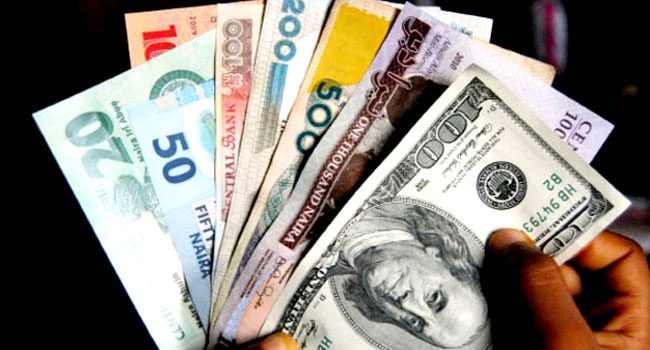The Naira continues to decline in forex markets, the naira depreciated relative to the US dollar, trading at N1,348 on the official market and N1,447 on the illegal market, respectively.

On Monday, the value of the Naira declined compared to the US dollar on both the authorized and unapproved markets, according to statistics released by FMDQ and dealers operating on the parallel market.
The data shows that Naira continues to decline in forex markets on Monday, the official window for domestic currency ended at N1,348 per $1. The rate is down N528.1, or 51.1 percent, from the N891.90 it was last Friday during the previous session.
With strong demand for the US dollar, the naira saw an intraday high of N701.0 and a low of N1,414.94 before closing at N1,348 on Monday.
Related: Electricity Theft: Court adjourns case against Abuja property developer
The official market registered a foreign exchange turnover of $64.3 million during the business period.
In a similar vein, the naira continued to depreciate on Monday during the unauthorized window.
The minimum rate for the dollar traded at the parallel market was N1,447 and above, based on market rates collected from street market vendors around the nation on Monday.
Related: Guterres makes case for Africa, calls for UN Security Council reform
According to Shuaibu, a Bureau De Change operator in Uyo, “There is a high demand for the dollar and banks are paying the dollar, but we can’t really say what’s driving the rate higher,”
Experts have linked the ongoing decline in the value of the local currency relative to the dollar to a constant increase in the demand for dollars from the populace to pay for things like airline tickets, school fees, and import costs.
The Central Bank of Nigeria (CBN) had earlier declared that it had added an extra $500 million to the foreign exchange market, which coincided with Monday’s depreciation.
The action was taken around a week after the company declared that it had already distributed $2 billion to important industries like manufacturing, aviation, and petroleum.
The CBN made hints on Monday that it has started putting a comprehensive plan into action to increase short-, medium–, and long-term liquidity in the Nigerian foreign exchange markets.



















